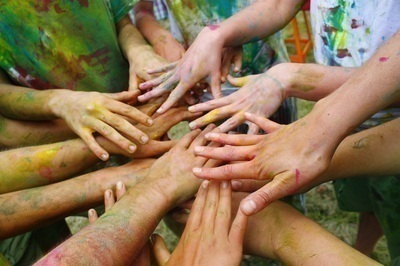According to Gregory Ballard, Mayor of the city of Indianapolis, the African Center has been a reliable and innovative resource for aid, support, and
cultural expression of every African-born resident of Indianapolis. “The African Community International provides the ingredients needed by Africans to stabilize, connect and participate effectively in America’s society develop and reach their dreams and contribute to the development of themselves, their countries of origin and humanity,” Mayor Ballard is quoted as saying. The organization provides a free health center for all Africans in a country where health care is over-the-top expensive, food distribution program for vulnerable newcomers into Indianapolis community, a training institute for job seekers and refugees with little or no eduction with a capacity to offer language acquisition training to groups in Arabic, Kiswahili, Hausa, Pula or Fulani, Yoruba, Igbo, Lingala and other commonly used languages in Africa. The organization’s operational philosophy is based on support and empowerment with the belief that the end result will lead to a shared, dynamic vision of a community’s future, which inspires members to work together to secure that future. The two weeks event put together by Shola Ajiboye, CEO of African Community International, kicked off with the Quarter-For-Life Race, a run-walk charity event that raised funds and friends in support of the free community clinic. After a platform where government officials, African ambassadors, African business and professionals provided insights into the historic and current events in Africa, a taste of Africa, fashion of Africa and fairs from Africa followed. “The events provided knowledge about the variety and richness of African foods, promoted healthy eating habits and promoted community interaction through music, food and networking,” said Mr. Fred Yonga, president of the Young Patriots of Africa- a youth group dedicated to the well-being of Africans. African newcomers whether an international student, a professional, a refugee, an asylum seeker, a family member, even a former child soldier or someone just seeking a better life than what they were experiencing in Africa, often find themselves negotiating and adjusting to a society that is culturally, technologically, and linguistically foreign to them. “Beyond stereotypes and generalizations that are created by the “all too common” headlines of civil war, health epidemics, and governmental corruption, each individual that arrives from the continent or who is raised within an African household has a unique story to tell…her or his own “headline” that is full of intriguing details that depicts the challenges, the successes, the failures and the hope of living as an African within the United States,” a statement from the African center reads. The story of African resettlement in United States and Indiana in particular is as diverse as the continent itself. While the African newcomer community can be associated with distinct regions of origin and major language groups, the individuals and their families that now call Indianapolis “home” can be further distinguished by their particular tribal or ethnic affiliations, their multiple languages, cultural traditions, religious beliefs, socio-economic status, education, skills, talents, as well as either their shared or distinct reasons for leaving Africa and resettling in the United States.
The African commuinty Inc., is the sole provider of integrated services and continuous support for Africans in the Indiana community and its ability to condense Africans of different nations into a community has been hailed by observers in the American public and African governments.
US Fostering African Unity In Indianapolis 2009: According Gregory
US Fostering African Unity in Indianapolis

Event Location:
